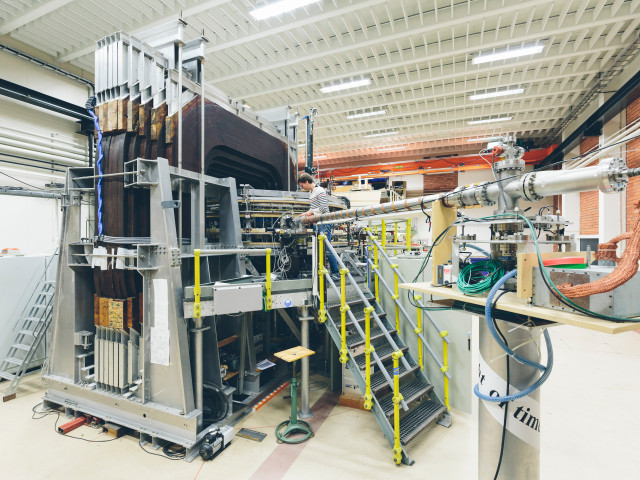Solar energy, the carbon cycle, the Green-house effect, fossil-fuel energy, heat engines, nuclear power, fission and fusion, renewable energy from sun, wind, water, biosources, environmental pollution in air, water, noise and radiation, climate changes, sustainable development.
SK2711 Environmental physics 6.0 credits

The course covers the physics of solar energy, the carbon cycle, carbon-based, nuclear, and renewable energy, the Green-house effect, and how mankind affects the environment. The emphasis is on conceptual understanding of the relevant physical mechanisms.
Information per course offering
Course offerings are missing for current or upcoming semesters.
Course syllabus as PDF
Please note: all information from the Course syllabus is available on this page in an accessible format.
Course syllabus SK2711 (Spring 2022–)Content and learning outcomes
Course contents
Intended learning outcomes
The course covers the physics of solar energy, the carbon cycle, carbon-based, nuclear, and renewable energy, the Green-house effect, and how mankind affects the environment. The emphasis is on conceptual understanding of the relevant physical mechanisms.
The student will learn to:
- solve problems regarding the solar radiation, the Earth's carbon cycle and the Green-house effect
- analyze the structure of the atmosphere and the biospheric radiation balance
- perform calculations on conventional carbon-based and nuclear energy
- evaluate renewable energy sources - solar, wind, water, and bio
- analyze effects on the environment, various sources of pollution, as well as aspects of sustainable development of mankin
Literature and preparations
Specific prerequisites
Introductory courses in Termodynamics and Modern Physics at BSc level or equivalent.
English B / English 6
Recommended prerequisites
Introductory courses in Termodynamics and Modern Physics at BSc level or equivalent
Literature
Examination and completion
Grading scale
Examination
- TEN1 - Written examination, 6.0 credits, grading scale: A, B, C, D, E, FX, F
Based on recommendation from KTH’s coordinator for disabilities, the examiner will decide how to adapt an examination for students with documented disability.
The examiner may apply another examination format when re-examining individual students.
If the course is discontinued, students may request to be examined during the following two academic years.
A written exam: TEN, 6 hp, grading scale A-F.
Examiner
Ethical approach
- All members of a group are responsible for the group's work.
- In any assessment, every student shall honestly disclose any help received and sources used.
- In an oral assessment, every student shall be able to present and answer questions about the entire assignment and solution.
Further information
Course room in Canvas
Offered by
Main field of study
Education cycle
Supplementary information
The course may be canceled with less than 10 registered